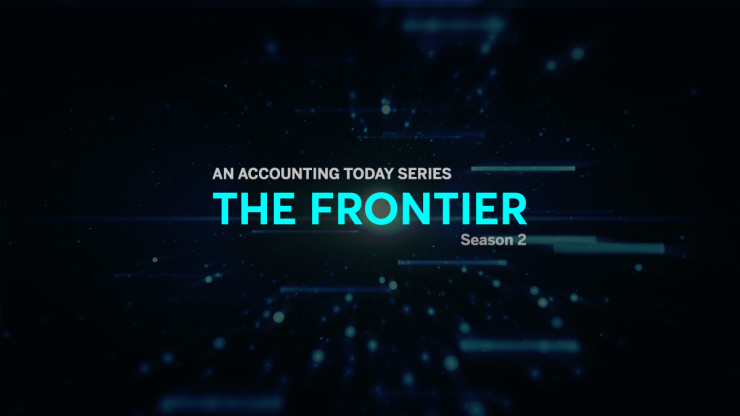
Accountants are truly living in the age of data, where sophisticated gathering techniques combine with computer-guided analytics to produce business insights for clients that translate into more revenue for the firm. It has transformed every level of the profession to the point where even sole practitioners operating from a storefront can nonetheless leverage massive amounts of information to better serve their clients, often with the help of powerful software.
For a while, the profession's problem was getting access to enough data in the first place. Today, however, accountants have access to a veritable ocean of information, as vast and deep as any of the real ones. This has shifted the conversation from how to get more data to how to manage what accountants already have. Peter Scavuzzo, principal and chief digital information officer for Top 25 Firm Marcum, said this is partially due to client demand. It is no longer enough to provide the data. Now they are counting on their accountants to interpret it, which is a different thing.
"Data analytics is hot and it always has been hot, but it kind of tempered down a little mainly because people came to realize you can't really get to these data models out there until all your data is clean," he said.
In 2021 alone, people produced over 79 zettabytes (each about 1 trillion gigabytes) worth of data, according to
Kacee Johnson, vice president of strategy and innovation with CPA.com, said this has the effect of basically creating a firehose of data that's difficult to get a handle on. "There's so much information coming at us from every platform imaginable that it's hard to digest it all and prioritize. I think it's just overwhelming for most, and they don't even know where to start. So we need to find ways to sort through all the noise and relate it back… There's so much at our fingertips all the time, but it's information overload. Sometimes I'm just, 'How do you decompress?'" she said.
Ironically enough, the very act of analyzing data produces even more data, which can then be analyzed. Johnson, with some amusement, noted that this even applies to the interview being done for this very article you are reading.
"It's funny, even in this interview, we're putting more information out there, which is valuable and great, but it's another piece of information, and how does this get translated, what do [readers] take away? I think about this all the time when I book keynote speakers. They're going to be sitting there in a conference for four days and there's so much information, but how much will they walk away with and actually change?" she said.
Shawn Slavin, president of the Information Technology Alliance, noted that beyond even making sense of the data is the question of whether someone can even rely on it. It does no good to analyze a data set when the information itself is suspect. The issue, he said, is a lack of trust. While there is all this information coming in, the question is whether the source can be trusted as reliable and accurate. With so much out there for different people with different perspectives, he said, it can be difficult to know what's correct and what is not.
"I go back to the food pyramid. That was solid science in the 1970s and 1980s, but I don't believe anyone today thinks that's how we should feed our children. So knowledge evolved and increased and expanded. How do we know what really is factual and what is accurate despite someone's best efforts to remove their opinion from the equation?" he said.
Marcum's Scavuzzo said that technology hasn't really caught up to the sheer amount of data that accountants need to process in order to unlock its value, and says it will likely be years before that happens. But taming "data sprawl" is more than a technological question. He said that firms will also need to develop new processes and procedures to get a better understanding of data governance, much of which has to do with streamlining data.
"Unless you run a very tight machine with a constant vision for how you want to progress the firm forward, you can install a cloud initiative, you can buy systems, you can merge in firms … All this stuff is great but we cannot move like a slow, squeaky machine. We have to act like a real technologically transformative company and move at that pace [or else] all this stuff becomes unsustainable," he said.
This story is part of the second season of the Accounting Today series called "The Frontier," where we explore the cutting edge of accounting technology through conversations with thought leaders across the country, who will share with us their observations, hopes, concerns and even a few predictions here and there.
See the rest of





